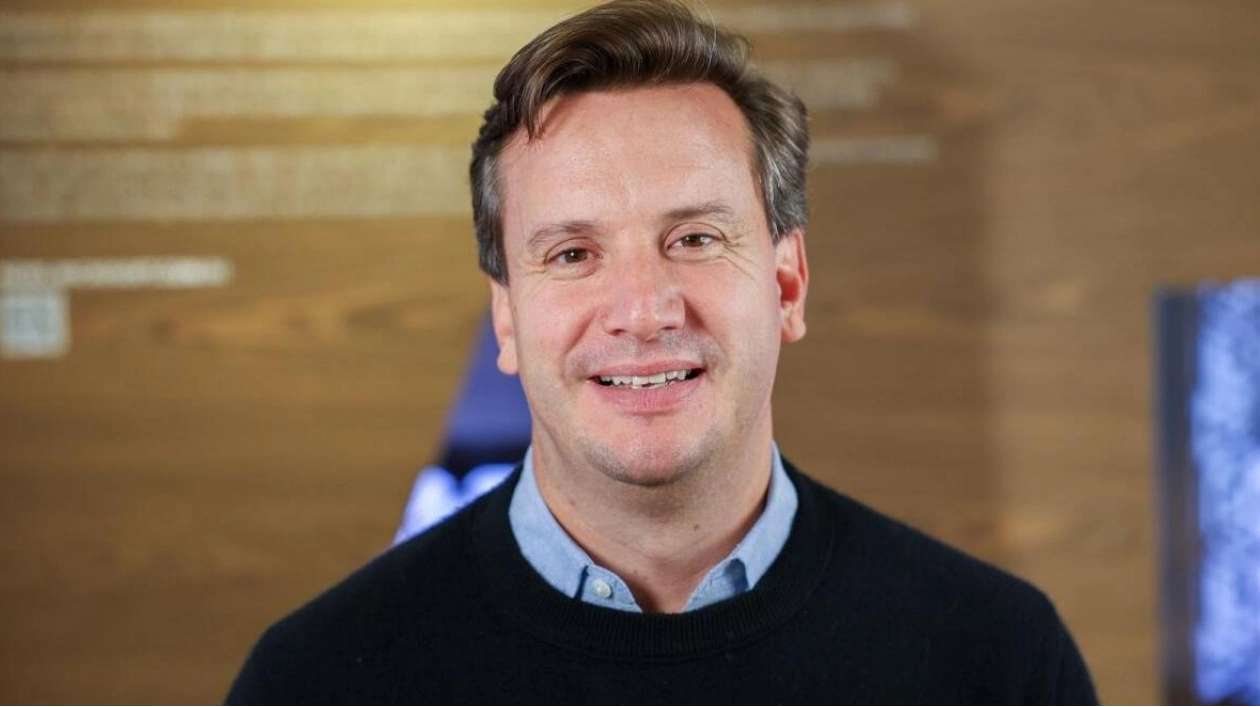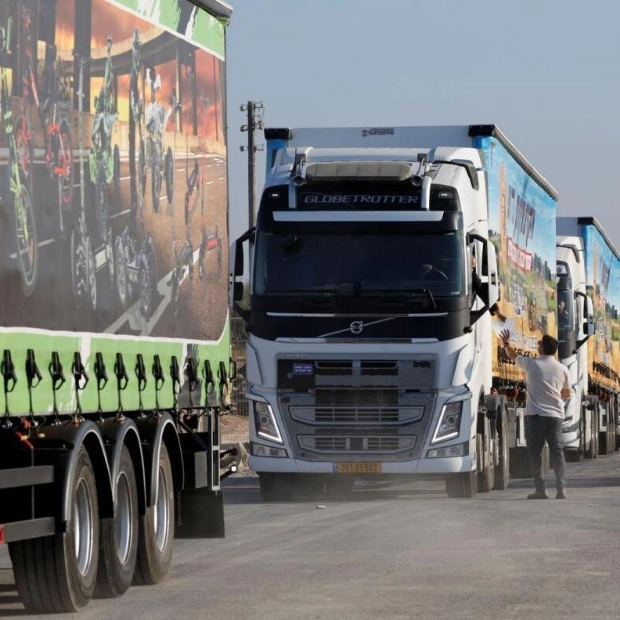Artificial intelligence is revolutionizing how we think, process, and analyze data. Leading this transformation is Microsoft's AI for Good Lab, which employs AI to enhance data collection for critical issues like crises and climate change, promising faster responses during pivotal moments. Juan M. Lavista Ferres, Corporate Vice President and Chief Data Scientist of the AI for Good Lab at Microsoft, spearheads a team of experts in AI, Machine Learning, and statistical modeling. His editorial guidance shapes the Microsoft Journal of Applied Research (MSJAR), defining AI and Data Science within the company. He discussed with us the advancements Microsoft is making in AI, its limitations, and how it can aid in quicker recovery during pandemics. Excerpts from the interview:
The application of AI to address global challenges is a commendable endeavor. Your book AI For Good will undoubtedly inspire others to follow suit. What motivated you to work in this field? Early in my career, I worked at the Inter-American Development Bank, where I contributed data to assess the impact of projects in developing countries, particularly in health, education, and sanitation. Witnessing firsthand how technology could drive significant change in underserved communities profoundly inspired me. This experience underscored the potential of data and innovation to solve real-world problems, fueling my passion for using technology—especially AI—to make a positive global impact.
Microsoft’s AI for Good Lab assists organizations in tackling issues related to healthcare, sustainability, climate change, and other humanitarian concerns. How can AI be utilized to enhance pandemic preparedness? AI is pivotal in boosting pandemic preparedness by improving early detection, response times, and resource allocation. For instance, AI can analyze real-time data from health records, social media, and environmental factors to identify potential outbreaks early. By leveraging predictive analytics, AI aids governments and health organizations in anticipating healthcare needs, enabling timely interventions such as vaccine distribution, hospital resource planning, and public health communication. During the Covid-19 pandemic, Microsoft’s AI for Good Lab collaborated with global partners to develop solutions that strengthened these efforts, fostering a more resilient and responsive healthcare system for future pandemics.
AI has made substantial progress over the past decade. Are there past natural disasters where today’s big data capabilities could have expedited community recovery? AI has advanced significantly, and its current capabilities could have dramatically improved disaster preparedness and response in past events. Two key areas where AI and big data have become game-changers are rapid disaster assessment and disaster preparedness and risk mapping. Modern AI models can analyze high-resolution satellite data to provide near-real-time disaster assessments, allowing response teams to allocate resources efficiently and target areas most in need. Additionally, AI can analyze environmental factors like flood zones or heatwave-prone areas to identify vulnerable populations, enabling governments and humanitarian organizations to prioritize these communities and design more effective response strategies.
Are there areas where we collectively lack data collection or analysis that could enhance our current AI models? One significant area is accessibility scenarios. Currently, 1.3 billion people worldwide live with disabilities, yet many AI systems struggle to address their needs due to insufficient data. While advancements in large language models and multimodal AI are bridging some gaps, many accessibility scenarios remain data-poor. It is crucial for society to recognize the value of this data and invest in building more comprehensive datasets to ensure AI can fully support accessibility needs, creating inclusive technologies that serve everyone.
Climate change will increasingly result in record-breaking temperatures across the Middle East. Could you discuss the technologies available at the AI for Good Lab that could help address these challenges? Heatwaves are a significant challenge often overlooked despite their devastating effects. A study found that from 2000 to 2019, approximately half a million heat-related deaths occurred annually. The AI for Good Lab has been leveraging AI and satellite imagery to address this issue. For example, in collaboration with SEEDS in India, we use high-resolution satellite data to analyze building materials, focusing on roofs, to identify structures more vulnerable to overheating. This information can guide targeted interventions, such as providing cooling resources or advising on heat-resistant building materials, ultimately reducing health risks posed by extreme temperatures.
The tools provided by the AI for Good Lab are crucial for forecasting climate dangers. However, the infrastructure needed to run, maintain, and improve AI models has its own carbon footprint. How is the AI for Good Lab working to reduce the environmental impact associated with AI's energy needs? While AI models are valuable in addressing global challenges, they contribute to emissions. According to the International Energy Agency (IEA), AI models account for approximately 0.01 percent of global emissions today. Although this figure is relatively small, it is growing, and the potential impact could become significant as AI adoption expands. At the AI for Good Lab, we are actively addressing this issue. Most of our models are trained and deployed in Microsoft’s data centers, which are powered by 100 percent renewable energy and designed to be highly energy efficient. Additionally, Microsoft has committed to becoming carbon negative by 2030, meaning we will remove more carbon from the environment than we emit.
Big Data empowers the algorithms that underpin AI models. However, the collection of big data has been associated with encroachment upon user privacy. How does the AI for Good Lab maintain respect for user privacy while improving its algorithms, particularly in domains such as diagnostic healthcare? At Microsoft, we believe privacy is a fundamental human right, and we design our AI systems with privacy protection at the core. The AI for Good Lab ensures privacy through several key practices: data anonymization, differential privacy, data minimization and governance, user control and transparency, and secure infrastructure. By embedding these privacy protections, we can advance AI responsibly without compromising user privacy.
Large language models have been reported to provide false responses at times. How does the AI for Good Lab safeguard against these instances, especially in crisis-related work with organizations such as The American Red Cross? Large language models are powerful but not always suitable for every scenario, particularly when the risk of false information could have serious consequences. In our work with organizations like the American Red Cross, we prioritize accuracy and reliability, often relying on traditional AI models like computer vision rather than large language models. For example, in crisis response efforts, we use AI to analyze satellite imagery and identify critical infrastructure or areas affected by disasters, ensuring the insights we provide are based on proven, highly accurate models, minimizing the risk of error.
Are there any initiatives currently being worked on between AI for Good and local institutions? Are there any local institutions that AI for Good would like to work with? Collaboration with local institutions is central to the work we do in the AI for Good Lab. Partnering with organizations on the ground is critical to ensuring our solutions are co-created with the communities they serve and have a meaningful and sustainable impact. One example is our partnership with the Kenya Wildlife Trust and the Smithsonian Institution, where we are collaborating to develop a data-driven solution to resource competition between pastoralists and wildlife in Kenya’s Maasai Mara.
Thank you for your time, Juan. One last question; how can social entrepreneurs and non-profits in the UAE get in touch with the AI for Good Lab? We recently announced with our partners at G42 that we would soon be expanding our AI for Good Research Lab to Abu Dhabi. We expect this will open many opportunities for social entrepreneurs and non-profits in the UAE to engage with us. We will have more details soon.
Source link: https://www.khaleejtimes.com






